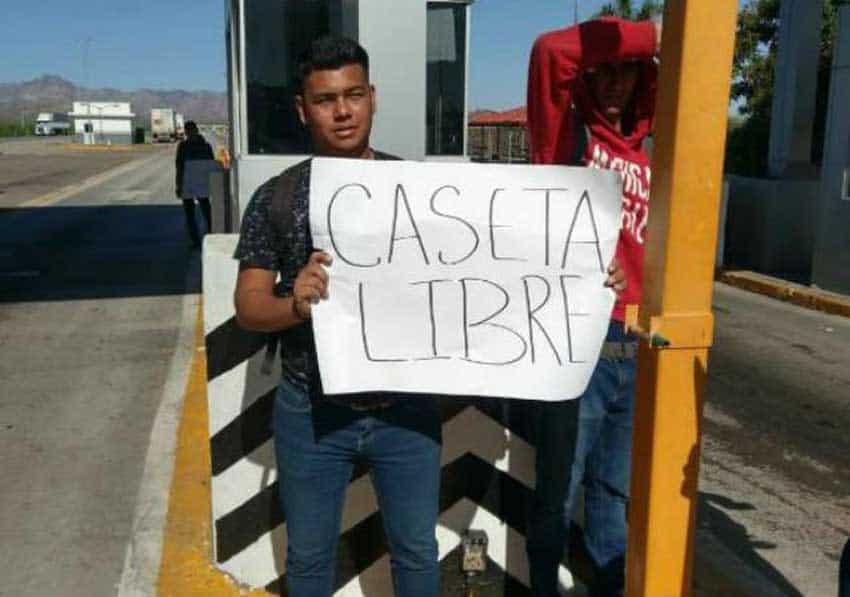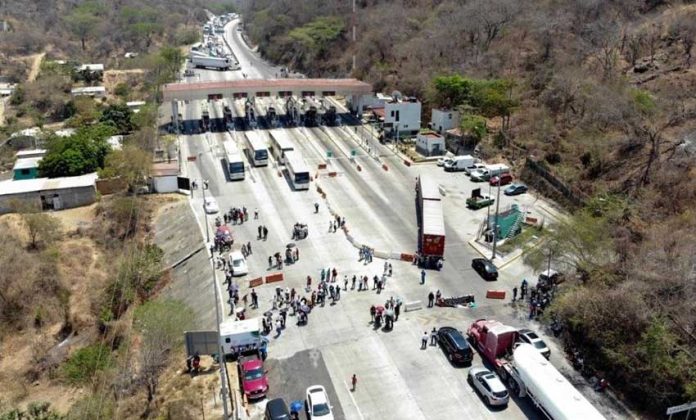People with an axe to grind took over highway toll booths at 13 locations in eight states yesterday, in most cases charging motorists to pass through in exchange for financial support for their various causes.
At one location, the protest continued today.
At the Tlalpan plaza on the Mexico City-Cuernavaca highway yesterday workers from the Autonomous Metropolitan University, who have been on strike for 71 days, asked motorists for a 50-peso contribution to their cause.
They returned early this morning but were forced to retire soon after by a group of people on motorcycles who charged drivers 20 to 50 pesos and expressed the demand that Mexico City not violate the rights of motorcyclists.
In Tabasco, some 250 farmers took over the Magallanes toll plaza on the federal highway No. 180 demanding government aid.

The Chalco toll booth on the Mexico City-Puebla highway was occupied by unidentified protesters collecting monetary contributions, though it wasn’t clear what the money was for.
Farther east on the same highway another group took over the Amozoc toll plaza where motorists’ “contributions” were not voluntary — each vehicle was charged 50 pesos to get through.
A similar report came from the San Marcos toll plaza.
Farmers took over the Acayucan toll booths between the Veracruz cities of Córdoba and Minatitlán, where they asked motorists for financial cooperation because they were short of funds to buy diesel.
The day would not have been complete were it not for a teacher protest against education reform.
Teachers affiliated with the Guerrero-based CETEG union took over the La Venta toll plaza between Chilpancingo and Acapulco to demand the full repeal of the 2013 reforms.
In Sonora, where plazas have been closed previously by organizations opposed in principle to charging motorists to use highways, three were occupied on federal highway No. 15 at Hermosillo, Guaymas and Fundición, where vehicles were allowed to proceed without paying.
The protests were timed to coincide with the first day of the Easter holiday period, when many more people were on the road than usual.
The states affected were Baja California, Guerrero, México, Mexico City, Puebla, Sonora, Tabasco and Veracruz.
Source: Reforma (sp)
